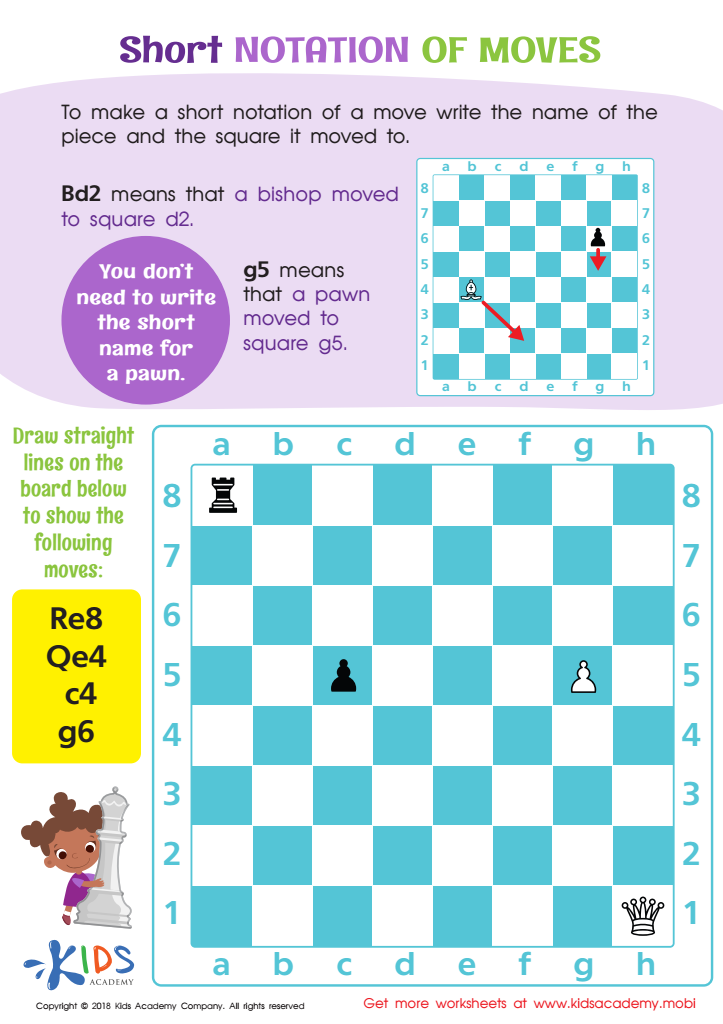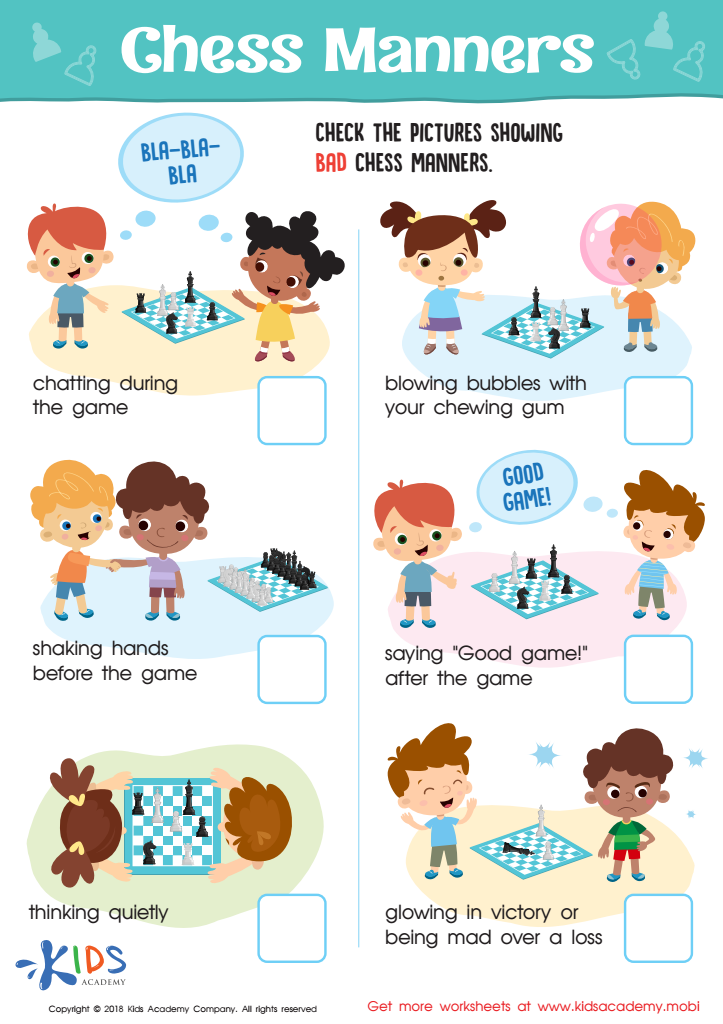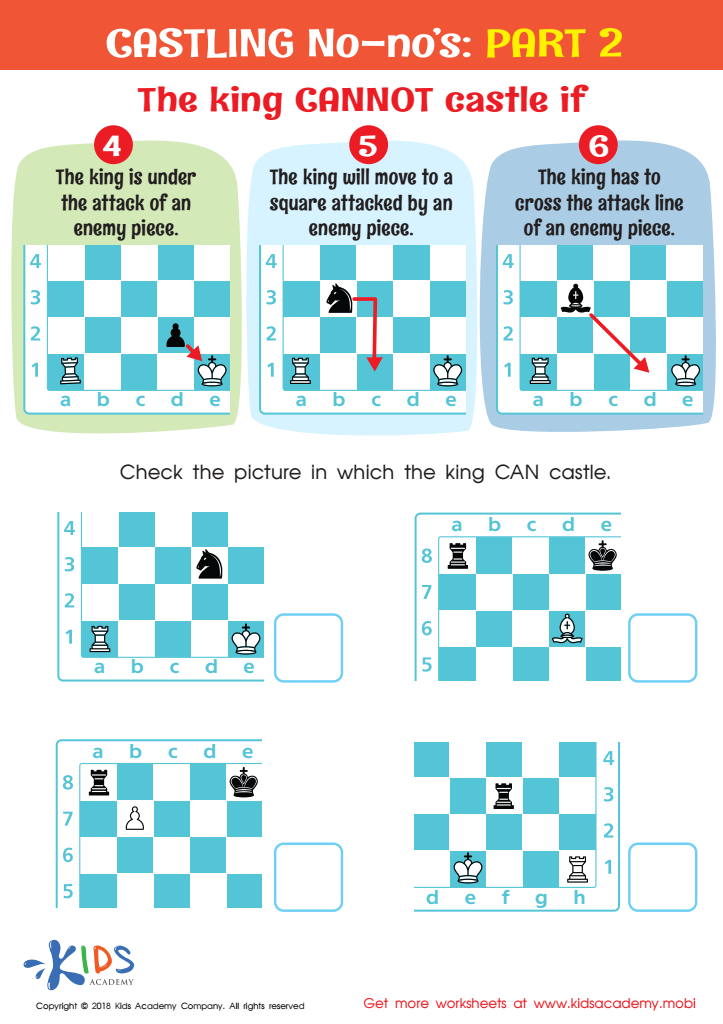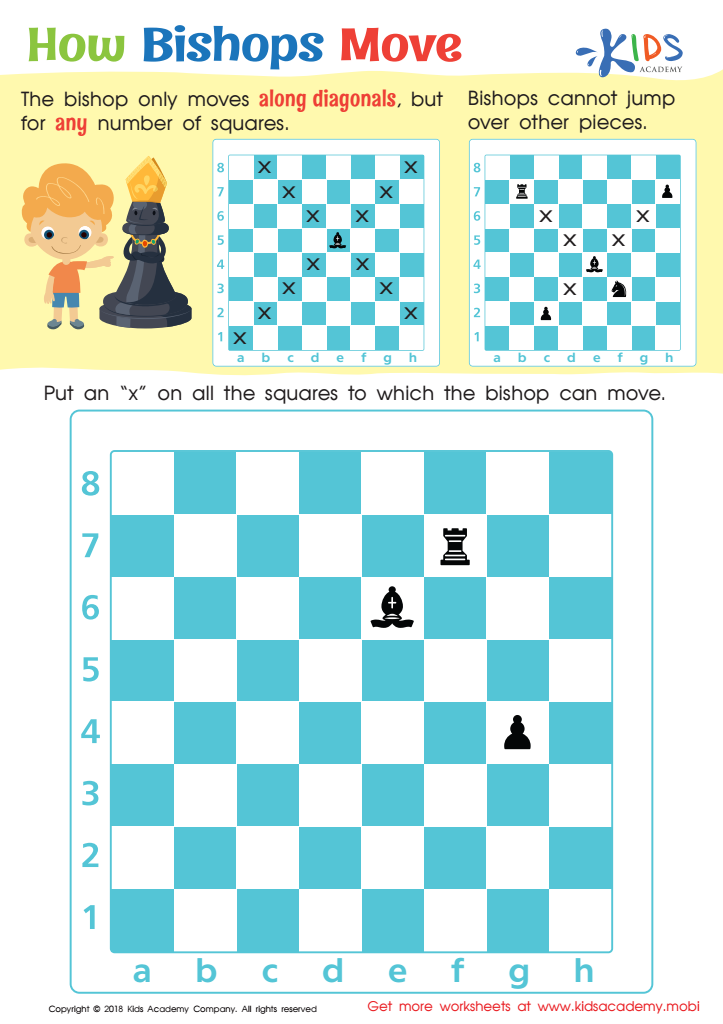Chess rules understanding Worksheets for Ages 3-6
4 filtered results
-
From - To
Introduce your little ones to the world of chess with our "Chess Rules Understanding Worksheets for Ages 3-6." Specifically designed for young learners, these engaging worksheets simplify the classic game's rules and principles. With colorful illustrations and kid-friendly explanations, children can grasp basics like piece movement and game objectives. These worksheets enhance critical thinking, problem-solving, and concentration skills, making learning chess fun and accessible. Perfect for parents and educators seeking to spark young minds’ interest in strategic play. Download today to make your child's first chess experience exciting and educational!


Short Notation of Moves Worksheet


Chess Manners Worksheet


Castling No - no's: Part 2 Worksheet


How Bishops Move Worksheet
Understanding chess rules at ages 3-6 offers extraordinary developmental benefits for young children. First and foremost, introducing chess to young minds nurtures critical thinking. The game's strategic nature teaches children how to plan ahead and make decisions based on careful reasoning, fostering problem-solving skills that apply to real-life situations.
Moreover, chess helps improve concentration and patience. The need to focus intensely on the board to anticipate opponents' moves encourages children to pay attention for longer periods, bolstering their overall concentration. Playing chess also instills patience, as children learn the importance of waiting for the right moment to act.
Socially, playing chess cultivates a sense of sportsmanship. Understanding the rules and participating in the game teach kids to respect opponents, win graciously, and handle losses maturely—valuable life lessons in emotional regulation.
Additionally, chess engages spatial reasoning and arithmetic. Identifying patterns, understanding grid systems, and counting moves enhance mathematical and cognitive skills, better preparing young children for formal education.
Lastly, early engagement in chess instills a lifelong love for learning. Enjoying such a complex game can stimulate intellectual curiosity and the joy of overcoming challenges, fostering a growth mindset.
In summary, encouraging 3-6-year-olds to understand and play chess fundamentally supports their intellectual, emotional, and social development, building foundations for lifelong success.
 Assign to My Students
Assign to My Students




.jpg)















